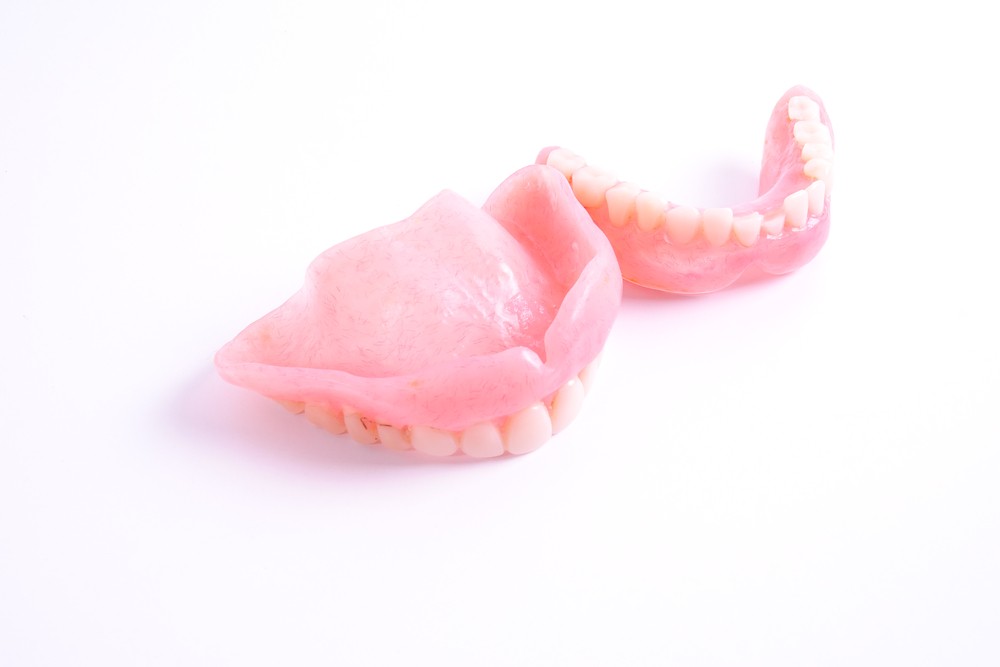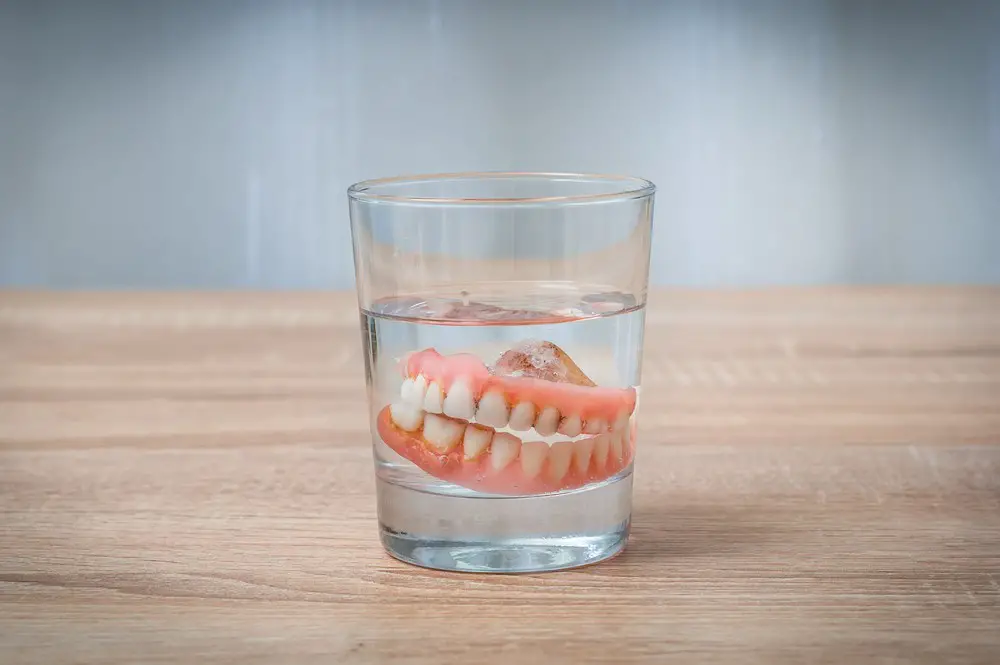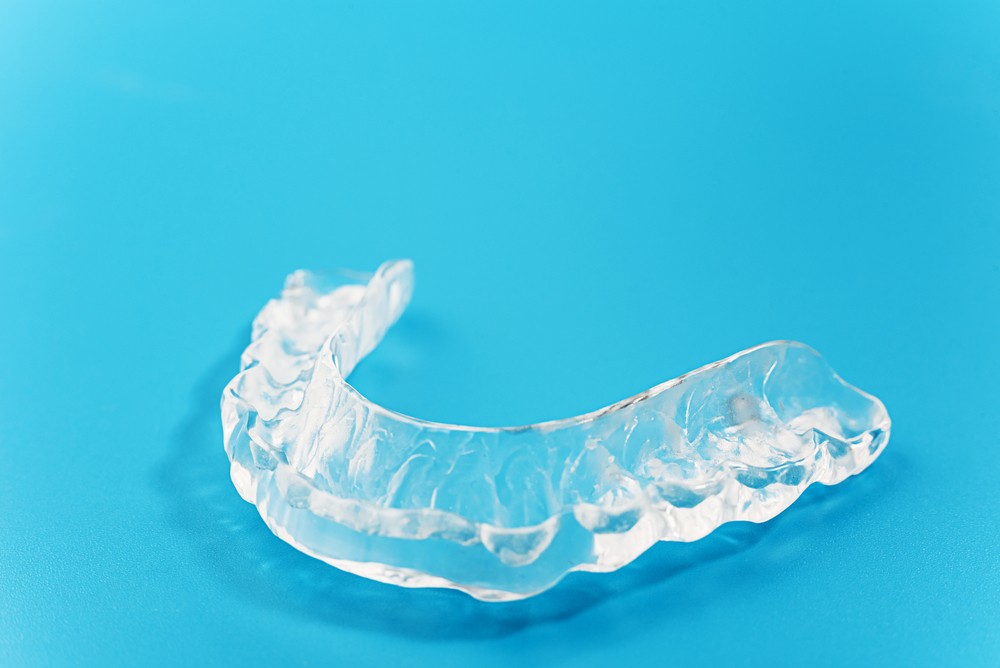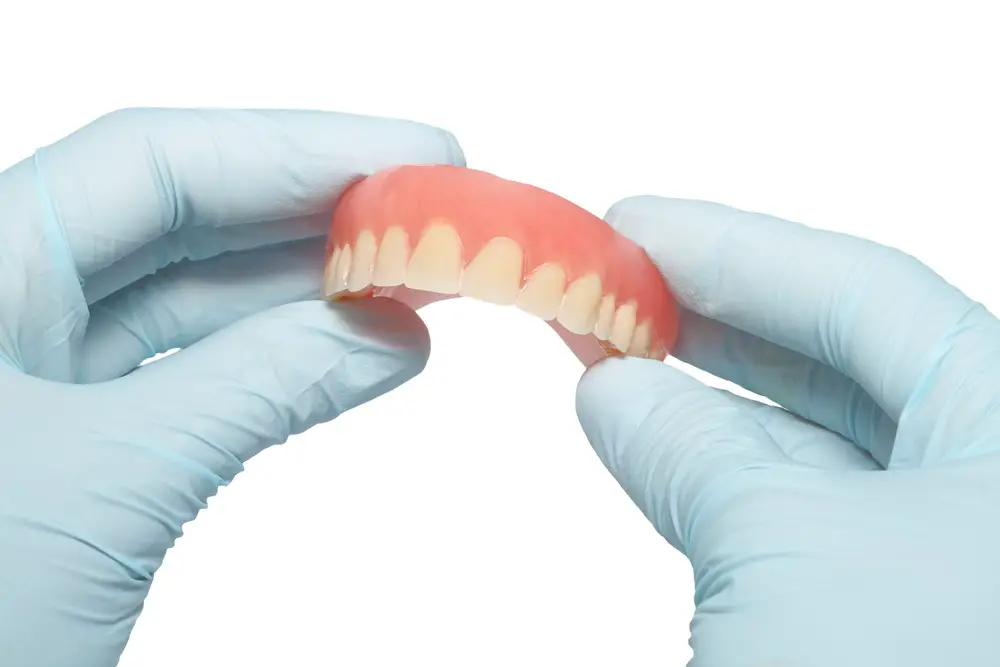As a BetterHelp affiliate, we receive compensation from BetterHelp if you purchase products or services through the links provided
Many individuals who wear dentures often wonder if sleeping with them is safe and comfortable. This is a valid concern, as dentures play a vital role in a person’s daily life, from eating to speaking to maintaining facial structure. Knowing the pros and cons of wearing dentures to bed can help users make informed decisions and adopt healthy oral care habits.
Dentures are designed to replace missing teeth, providing aesthetic and functional benefits. However, when it comes to wearing them overnight, several factors must be considered. People with dentures experience varying comfort levels, and what works for one may not be suitable for another. Denture wearers need to understand the advantages and potential risks of sleeping with dentures and the proper care routines to ensure optimal oral health and denture longevity.

Why Is It Important to Remove Dentures at Night
Gum Health
Removing dentures at night is crucial for maintaining good gum health. Wearing dentures throughout the day can pressure the gums, leading to discomfort and inflammation. Giving the gums a break during the night lessens the chances of developing gum irritation or sore spots. This allows for improved healing and overall gum health.
Bacteria and Plaque
Dentures can accumulate bacteria and plaque throughout the day. By removing them before bedtime, individuals can thoroughly clean their dentures and reduce the build-up of harmful oral bacteria. Practicing proper oral hygiene, including brushing and using a denture cleaner to remove any biofilm from the denture surface, is essential. This process helps to prevent gum disease and maintain optimal oral health.
Additionally, oral bacteria can increase during sleep when saliva production decreases. Taking out dentures overnight minimizes the bacteria build-up, reducing the risk of oral infections or gum inflammation. It is essential to maintain a clean oral environment not only for the gums but also to avoid complications from bacteria and plaque around the dentures.
Risks of Sleeping with Dentures
Oral Infections
Wearing dentures at night can increase the risk of oral infections. Bacteria and fungi like Candida may thrive in the moist environment under the dentures, leading to denture stomatitis. This condition can cause inflammation, redness, and swelling of the gums. Removing dentures before sleeping helps the gums recover and reduces the risk of infections.
Pneumonia
Sleeping with dentures can also increase the risk of pneumonia. Bacteria build-up in the mouth and may be inhaled into the lungs, causing respiratory issues. This risk is higher in full dentures than partial dentures, as full dentures cover more oral tissues. Taking out dentures at night can lower the risk of bacteria inhalation and decrease the risk of pneumonia.
Obstructive Sleep Apnea
Wearing dentures at night may contribute to obstructive sleep apnea (OSA). Dentures may cause discomfort, changing how a person breathes while asleep. These changes can obstruct airflow and lead to sleep disruptions and snoring. Removing dentures before sleep can help improve sleep quality and reduce the risk of OSA.
Bone Loss
Constantly wearing dentures, especially at night, may contribute to bone loss in the jaw. When dentures are not removed before sleep, the pressure on the gums and jawbone is continuous, which could accelerate bone resorption. Allowing the mouth and gums some rest by removing the dentures at night can help minimize the risk of bone loss.
Denture Care and Cleaning Routine
Removing and Rinsing Dentures
Removing dentures every night before sleeping is essential to give the gums and mouth a chance to rest. After removing dentures, they should be rinsed thoroughly with warm water to remove food particles and other debris.
Denture Cleansers
To maintain oral hygiene and preserve dentures, it is essential to use a proper denture cleanser. Denture cleansers are specially designed for cleaning dentures without causing damage to the materials used. Avoid using toothpaste or regular cleaning solutions, as they may be abrasive and damage the denture. Soak the dentures in a cleaning solution or use a soft-bristled denture brush to clean them gently but effectively.
Tongue and Mouth Care
While dentures are removed, cleaning the tongue and mouth is a great opportunity. Using a soft toothbrush, gently brush the tongue to remove plaque and bacteria that can cause irritation and oral health problems. Additionally, it is crucial to clean the gums and any remaining teeth with a toothbrush or a damp cloth to maintain a healthier mouth environment.
Regular Dentist Visits
Regular visits to the dentist are essential for anyone with dentures. Dentists can monitor oral health and adjust the dentures as necessary. They can also provide professional denture cleaning, which can help remove stubborn stains and ensure a proper fit for maximum comfort and optimal oral health.

Adjusting to New Dentures
Taking Breaks
When adjusting to new dentures, it is crucial to allow yourself time to adapt to the feel and function of your dental appliance. Ease into daily activities, such as eating and speaking, and take breaks to rest your mouth and prevent soreness or discomfort. Remember to remove your dentures at night to give your gums and jaw a chance to recover. This also allows for proper cleaning and maintenance, which is essential to good oral health.
Monitoring your Oral Health
Regularly monitoring your oral health is crucial when wearing new dentures, as it helps ensure that your gums and jaw adapt well to the appliance. Observe the fit of your dentures, and if you notice any discomfort or sore spots, consult your dentist for possible adjustments or modifications. Maintain a consistent oral hygiene routine by brushing your gums, tongue, and palate with a soft-bristled toothbrush and cleaning your dentures using a denture-cleaning solution. You must visit your dentist regularly for check-ups and professional cleanings, as they can address any issues and help you maintain optimal oral health while wearing your dentures.
Denture Practices in Different Regions
United States
In the United States, it is common for individuals to sleep with their dentures in place. This practice varies depending on personal preference and comfort. Some denture wearers believe that keeping their dentures in at night helps maintain the shape of their jaws and gums, while others prefer to remove the dentures for a more comfortable sleeping experience.
Dentists in the US typically recommend removing dentures at night, as it allows gums to rest and recover from daily wear. Additionally, nightly removal can prevent potential oral health issues such as gum irritation and bacterial growth.
United Kingdom
In the United Kingdom, dentists advise patients to remove their dentures at night. This practice follows the recommendation of the British Society of Prosthodontics, which encourages denture wearers to take their dentures out while sleeping to promote good oral hygiene. Removing dentures at night allows the soft tissues in the mouth to rest, reducing the risk of infection and sore spots.
Germany
German denture wearers often follow the same practices as those in the UK: removing their dentures before going to sleep. German dentists emphasize the importance of oral health and daily denture care, including cleaning and disinfection. Proper denture care contributes to the dentures’ longevity and the wearer’s overall comfort.
France
In France, dentists encourage patients to remove their dentures overnight, aligning with the global consensus on promoting good oral hygiene. Denture wearers in France follow a routine of daily cleaning and maintenance to ensure optimal denture function and reduce the potential for complications or discomfort.
Italy
Italian denture practices adhere to the widely accepted recommendation of removing dentures while sleeping. Denture wearers in Italy prioritize cleanliness and maintenance, focusing on the significance of proper denture hygiene. Italian dental professionals advocate nighttime denture removal, as it is essential to maintaining healthy gums and tissues.
Spain
Denture practices in Spain are consistent with the typical recommendations in other countries. Spanish dental professionals also advise denture wearers to remove their dentures at night, allowing the gums and soft tissues to rest and recover. Like other regions, Spain recognizes the importance of nighttime denture removal for optimal oral health and longevity.

Frequently Asked Questions
What happens if you don’t remove dentures at night?
If dentures are not removed at night, it may cause a number of problems, such as gum irritation, mouth sores, and bacterial infections. Giving your gums a break is essential, allowing them to recover by removing the dentures overnight.
How many hours a day should you wear your dentures?
Dentures should typically be worn for around 16 to 18 hours a day, allowing ample time for your gums to rest and recuperate during the remaining hours. However, for newly fitted dentures, it may be necessary to wear them for a more extended period initially. Consult your dentist for specific recommendations.
Can dentures be worn 24 hours a day?
It is not advisable to wear dentures 24 hours a day, as doing so may lead to gum irritation, mouth sores, and bacterial infections. Your gums need a break to heal and recover, so remove your dentures for at least 6 to 8 hours a day, ideally during sleep.
Can you sleep with partial dentures in your mouth?
Removing partial dentures at night is still advised to give your gums a chance to heal and prevent bacterial build-up. However, if you prefer to sleep with partial dentures because they provide comfort or stability, consult your dentist to discuss the options and risks involved.
How soon can I sleep without my dentures?
Depending on your circumstances, it may take weeks or months before you feel comfortable sleeping without your dentures. During the initial adjustment period, sleeping without dentures might feel unnatural, but it is important to gradually get used to it to allow your gums to heal correctly.
A mouth guard for sleeping without dentures
A mouth guard may be recommended for individuals who experience teeth grinding (bruxism) or other oral issues while sleeping without dentures. A custom-made mouth guard provides a protective barrier between your teeth, preventing damage and relieving any associated discomfort. Consult your dentist for advice on obtaining a suitable mouth guard.
- 3 Ways Wearing a Hat Can Help Lower Your Stress Levels - April 19, 2025
- Breaking the Silence: Why Men’s Mental Health Matters More Than Ever - April 15, 2025
- How to Transform a Home’s Patio Space into a Relaxing Space - March 23, 2025
This site contains affiliate links to products. We will receive a commission for purchases made through these links.



